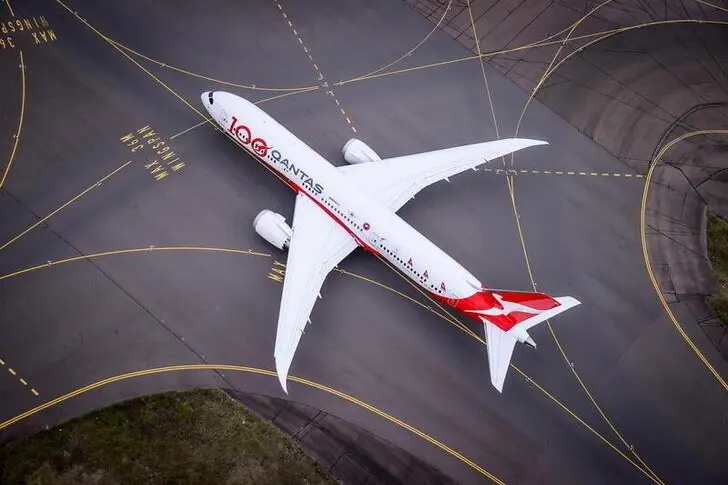PHOTO
SYDNEY - Australia's Qantas Airways Ltd has seen domestic leisure travel rebound to pre-pandemic levels, but demand in the corporate travel market is lagging about three months behind, its chief executive said.
The airline plans to fly 80% of its pre-pandemic domestic capacity in the quarter ending June 30, allowing it to generate cash for the first time in several quarters, Alan Joyce told a CAPA Centre for Aviation event on Wednesday.
His comments were made in an interview recorded the previous day.
Much of the Australian domestic business travel market is linked to areas such as transporting mining workers, government travel and essential construction and manufacturing travel that are proving resilient, Joyce said.
"The market that could be subject to being replaced by video conferencing, like professional services and people having internal meetings, we think the net result is something like a 13-15% drop in the corporate market," he said. "But with the potential for us making up that in market share."
Rival Air New Zealand Ltd last month said domestic business travel was back to 90% of normal levels, though fares were more heavily discounted than before the pandemic.
Domestic business travel demand in Australia and New Zealand, which have nearly eliminated COVID-19 transmission, is far better than in many other markets where infection levels are not as controlled.
The Global Business Travel Association last month released a poll of companies from the United States, Europe and Latin America that 69% had suspended most or all domestic business travel, up 5 percentage points from February. In contrast to the brighter domestic outlook, Qantas has grounded its international fleet until at least Oct. 31, with the exception of travel to New Zealand as part of a two-way bubble starting on April 19.
The Australian government on Sunday abandoned its target of vaccinating the population by the end of October. Joyce said that Qantas was still planning for international travel to resume then, but that it would be flexible.
(Reporting by Jamie Freed; Editing by Clarence Fernandez) ((Jamie.Freed@thomsonreuters.com;))





















